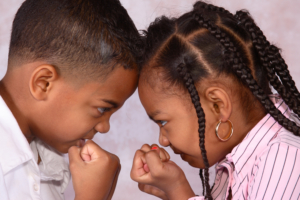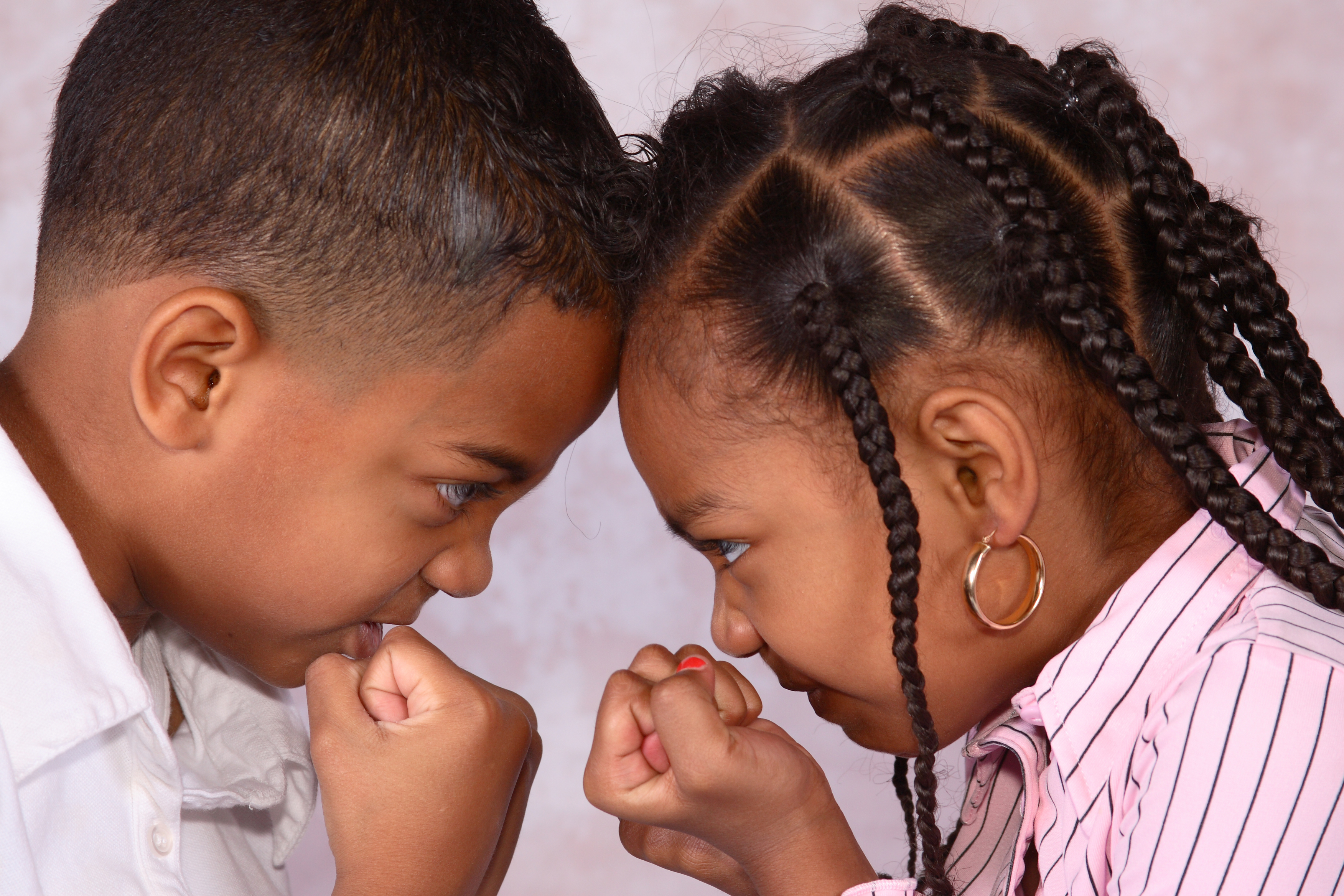 This is the second installment of our tips for reducing sibling conflicts. In the last post, I addressed knowing when to step in, explaining yourself, and holding both parties accountable. If you haven’t had a chance to read over those strategies, I’d suggest starting there and then coming back here to read more! This time I’m going to talk about some ways to stop fights before they start, and to help your children understand their own emotions as well as others’.
This is the second installment of our tips for reducing sibling conflicts. In the last post, I addressed knowing when to step in, explaining yourself, and holding both parties accountable. If you haven’t had a chance to read over those strategies, I’d suggest starting there and then coming back here to read more! This time I’m going to talk about some ways to stop fights before they start, and to help your children understand their own emotions as well as others’.
Nip it in the Bud
Some “squabbles” are going to seem like sudden death matches, and will completely blindside you. Parents will see other arguments build over time, and will notice some fights are predictably preceded by certain conditions (read: HUNGRY! or TIRED!). A little early intervention (sometimes in the form of a snack) can go a long way to save your sanity and patience.
Kids and teens also seem to annoy one another when they are bored which leads to conflicts, but providing some positive attention can often stop those fights before they start. Maybe your older child likes to have his or her own space or is learning to keep calm but your younger child loves to do that really annoying thing. You can save the day by distracting the younger child before the older one reaches his or her boiling point. Right now you may be thinking, “Well, that would work if I didn’t have my hands full doing X, Y, or Z,” and that is a fair concern. In this example, you may be able to successfully stifle the impending fight with your words alone. Lavishing some praise on your learning-to-be-calm child (e.g., “Wow, you are being so patient and kind to your brother/sister. That’s awesome!”), or your planning-to-be-annoying child (e.g., “It’s so nice of you to give your brother/sister privacy!”) will reinforce the good behavior, and encourage more of it.
Moreover, you can also “Nip it in the bud” by teaching your children problem solving and conflict resolution skills. Start out with ideas like “taking turns,” and then move on to compromise and negotiation skills (e.g., “Let’s play my game first, but your game longer.”). These are important skills children use to socialize with peers, but are also crucial in adulthood. Another teachable but more abstract concept is empathy. Once your children have learned to identify and label their own feelings, you can help them to recognize others’ feelings which will allow them to understand multiple points-of-view. Use “I feel” statements to teach emotion identification. “I feel _____(insert one word here) when ______(explanation of situation goes here).” Model these skills for your children with other adults, and practice them with your kids when resolving conflicts.
Have a Plan
Having a predetermined plan for handling common triggers (e.g., who gets to push the elevator button, or control the TV remote) is itself an early intervention. Especially with younger children, having the solution before encountering the problem can save you a meltdown or screaming match. Taking turns usually makes the most sense, but you may also need a way to determine who gets their turn first, since being first is a privilege too. Be careful! Now that you’re teaching your kids to be excellent negotiators you’ll have to be certain you stick to your plan or rule!
Family Meetings
Some families find it really helpful to have regular meetings for discussing recent family events, including conflicts. Children can really benefit from having a time to calmly discuss their feelings and grievances from the day (or week), and have their parents and siblings hear them. If appropriate, encourage your child to use the “I feel” statements mentioned earlier. During meetings, the parent’s role is to listen to each child’s feelings in order to reflect and validate the child’s feelings. Help your children understand what their feelings are by putting a name to the emotion they describe. You shouldn’t try to talk them out of their feelings, but you can try to point out how their emotions and their sibling’s feelings may be related or similar, and help the children talk about them with one another. As children age, those strong relationships you help them develop can weather the fleeting moments of anger or animosity.
Family meetings should incorporate the positive aspects of family life too! Try to point out positive things each family member has done recently, and encourage your children to do the same.
While it does not make the parent’s life easier in the moment, it is worth remembering that these arguments between siblings are teaching them valuable lessons about conflict resolution, social skills, and life (especially that it is not always fair). Keep at it parents! You’re working to raise well adjusted and socially skilled children. If you find yourself feeling overwhelmed and in need of someone to listen, please reach out. We’re here to help!
Take care,
Dr. Grinnell

